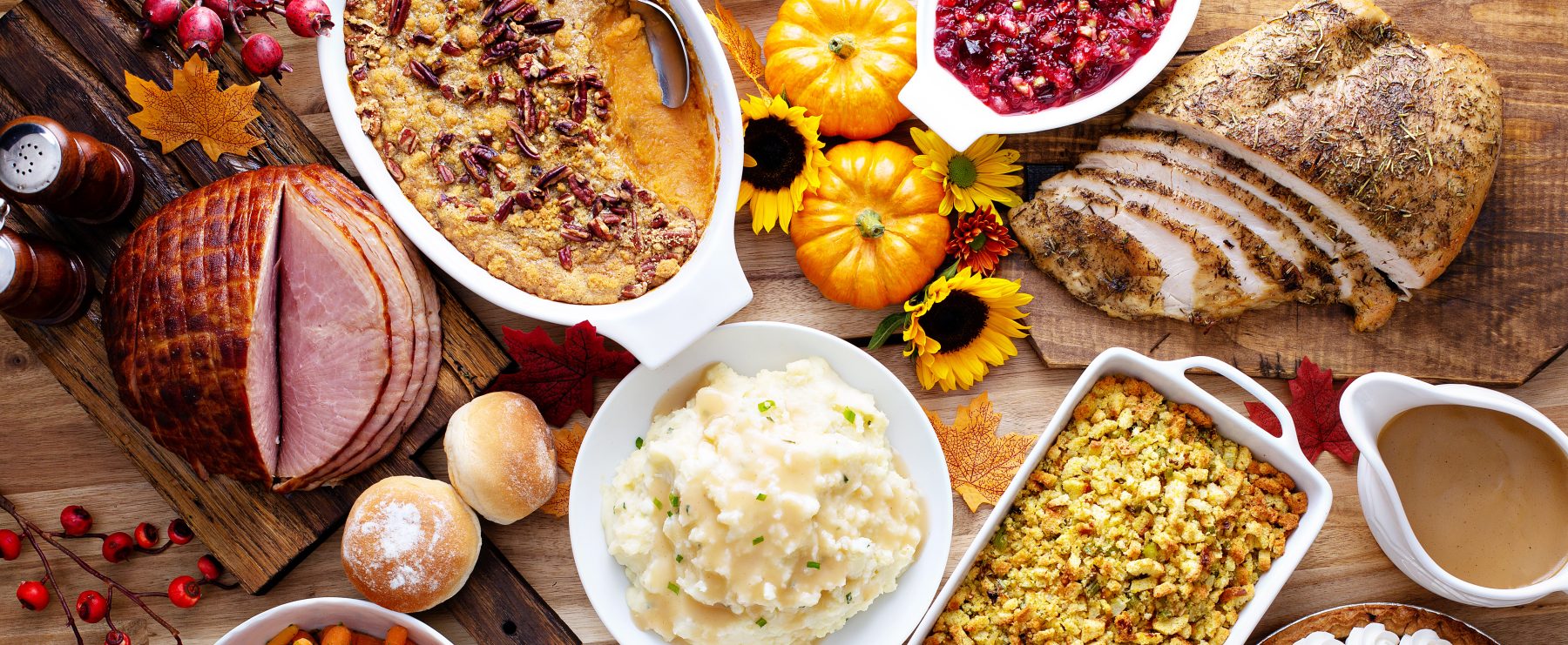
How to Mindfully Eat During the Holiday Season—A Conversation with TAMUC’s Registered Dietician
The holiday season—that sweet spot from Thanksgiving to Christmas—offers an abundance of mouthwatering dishes. Think turkey and dressing, mashed potatoes with gravy, rich and cheesy casseroles, and, of course, all of those sweet, sweet pies. Are you drooling yet?
While holiday food is delectable, the aftermath isn't always as satisfying. Maybe you can relate to the post-Thanksgiving tummy ache and feelings of regret. While the holidays and all their rich foods are kind to our taste buds, they can sometimes feel unkind to the rest of our body. So, how do we partake in the feast of rich foods and sugary desserts while also caring for ourselves?
We sat down with Kara Nemethy, a registered dietician in Campus Recreation at A&M-Commerce, to get her expertise and advice on mindfully caring for our health without missing out on all the holiday tastiness!

Q&A with Kara
Questions and answers have been edited for length and clarity.
Rachel McShane: Tell us first about your background in nutrition and what you do on campus.
Kara Nemethy: I am a registered dietician. I’ve been one since 2015, and I originally came from the Women Infants and Children (or WIC) program, a supplemental food program for children and their families. I worked there for about 15 years, so most of my experience has been with public health. I started at A&M-Commerce in January of 2022 as a registered dietician with Campus Recreation to create a nutrition program. I offer a variety of food-related events like cooking classes, demonstrations, hands-on workshops, and individual nutrition counseling to students.
RM: Wow! I didn’t even know these services were offered on campus!
KN: Yes, it’s pretty new! You can read about the different programs I offer on the Nutrition page for Campus Recreation. Classes are always posted on the Community Calendar or ManeSync. Students can contact me via email or through a form on the website to request an appointment with me and set up individual consultations!
RM: When we think about Thanksgiving, Christmas and holidays in general, we think a lot about the food: rich, heavy and sweet. Is it really so bad to indulge in these foods and potentially overeat at holiday meals?
KN: Well, I think the holidays are a time for us to enjoy family and friends, and it’s important to be aware of what you're eating but not focus on it too much or feel guilt or shame if you overeat. Of course, you want to be careful about certain things, but again, these are things you should be mindful of year-round. For instance, try to consume added sugar and saturated fat in moderation. And stay away from trans fats as much as possible. But, you know, when it comes to the holidays, it’s a time to enjoy our family and enjoy the food that brings people together! Eat things you want!
RM: Are there any “bad” foods we should avoid altogether?
KN: You know, I don’t like to demonize any food. I just don’t think that’s something we should do. Like I said, yes, some foods are high in sugar and saturated fats, and you shouldn’t have a whole lot of either. But when you find yourself in a mindset of avoiding all those kinds of foods at all costs, you’ll get into a restrictive eating pattern that can cause you to develop a harmful relationship with food down the road and could possibly lead to disordered eating patterns.
RM: I like what you said about not demonizing food or saying food is bad. But there are certainly good foods, right? What are some good, healthy foods we should lean towards or maybe put a little more of on our plates?
KN: Yeah, of course! That’s actually a great point: Focus on adding things that are good for you instead of focusing on taking things away that might not be so healthy. Whole grains, fruit, vegetables, nuts and seeds, beans and legumes, and lean proteins are all good foods we should enjoy not only during the holidays, but year-round!
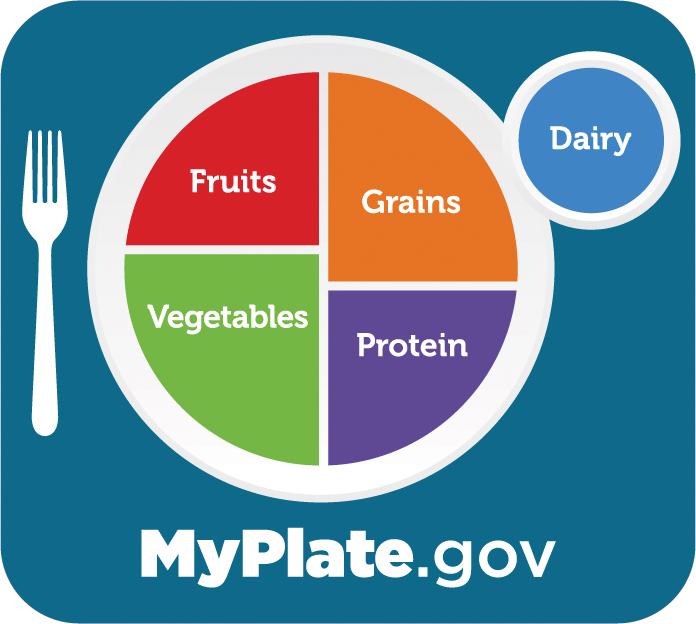
The government publishes an illustration called My Plate, which has replaced the old food pyramid many of us grew up with. Basically, My Plate says your plate should be 50% fruits or veggies, 25% grains (whole is ideal), and 25% protein. That’s possible to achieve, even during the holidays! For example, you could add roasted vegetables to your plate or add extra veggies when you make your stuffing. If you’re serving a cheeseboard, try adding some nuts and almonds or walnuts and seeds, and be sure to snack on those as well because they’re good sources of protein and fat. It’s okay to have sweets and rich foods, but balance them with healthy things. Just be mindful of what’s on your plate, including how much of each type of food.
RM: You’ve used the word “mindful” a lot. I’ve heard the term “mindful eating” quite a bit, too. Can you tell us a little bit about that?
KN: Yes! Mindful eating is just basically an extension of the concept of mindfulness. It encourages people to focus on the sensory experience of food, as well as their thoughts and feelings. So, if I’m eating an apple, rather than just looking at my phone and eating the apple and not thinking about it, I would savor it. I might think about the crispness of the bite, or the flavor, or the sweetness, or how it feels on my tongue. I might even think beyond that, like where the apple came from, how it was grown, what state it is from, the tree itself, things like that. Mindful eating is considering aspects beyond the food itself and considering where that food came from. It’s also about thinking about your hunger cues and recognizing when your body is full versus not full. It takes a little bit of time for that message of fullness to get to the brain, so sometimes we can overeat and not know it. So, it’s important to listen to your body and ask yourself, “Am I just continuing to eat this because I’m zoning out or watching TV, or am I eating because I’m hungry and need this nourishment?”
RM: That’s such helpful information! But around the holidays, there can be lots of stimulation around a table. We might not be alone, so it might be hard to think about the “crispness of the apple” when someone is right there talking to us. How can we still practice mindful eating in such a busy setting?
KN: That’s a great question! When it comes to the holidays, there might be lots of different stressors and feelings that come up for you, so carrying some tools in your bag can be helpful so you aren't coping by mindlessly eating food. Make sure to sit down when you eat—don’t just walk around and roam. Put your phone away, turn off the TV, and don’t put a screen in front of you. Engage in conversation. And portion your food! It’s easy to mindlessly eat when you have a bag or box of something, and it’s right there with you.
RM: Oh man, I understand that! I can sit in front of the TV and eat an entire bag of chips before I even know what happened!
KN: Oh yeah, we all can!
RM: Do you have any other tips and advice for how we can enjoy food and treats during the holiday season but still manage to take care of ourselves and be kind to our bodies?
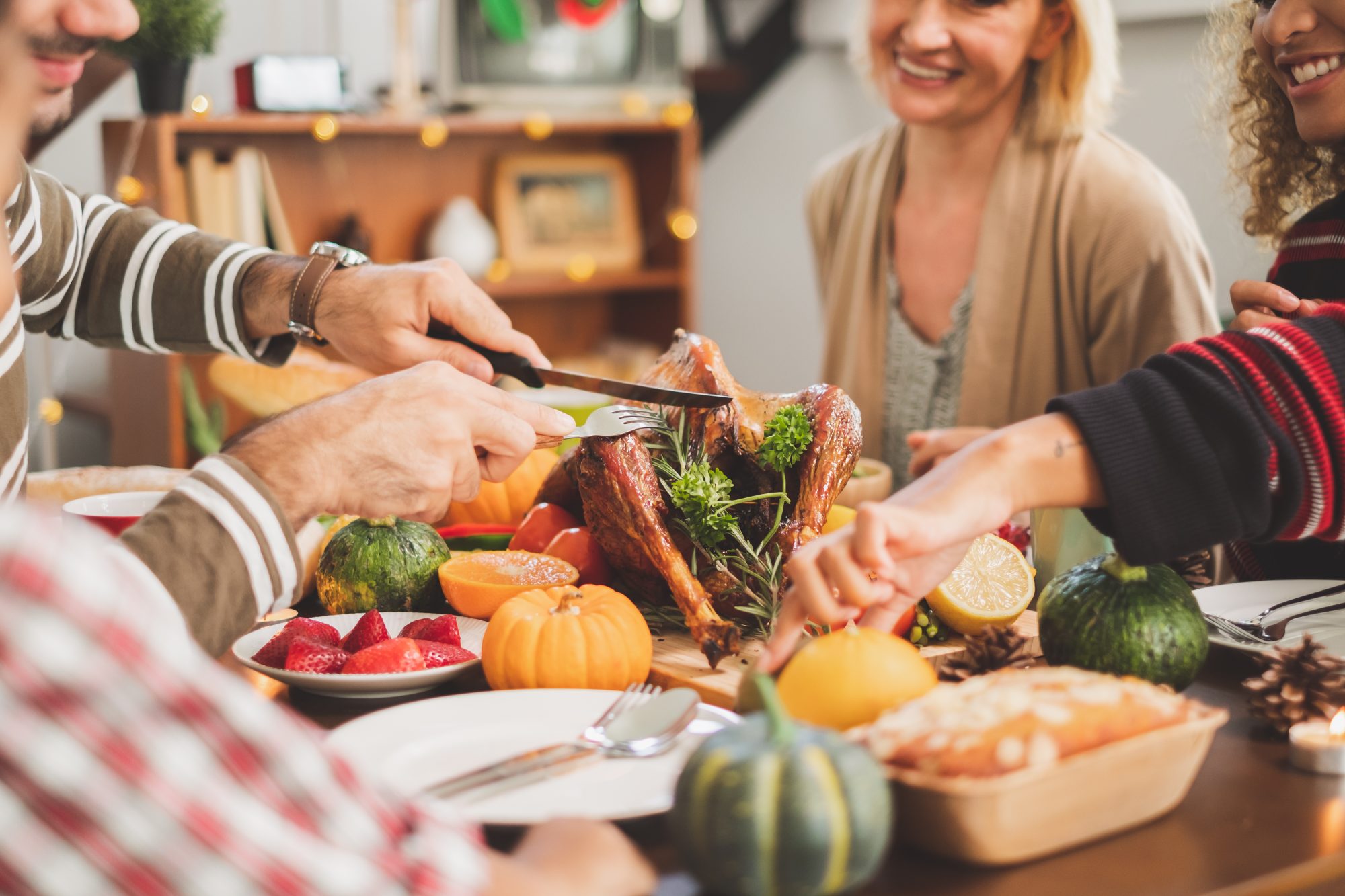
KN: I think you just said it: be kind to your body and yourself. Don’t let yourself feel guilty for enjoying the holidays. Take the time to relax and celebrate and be present with family and friends. Just be present when it comes to eating, too, and think about it. Also, don’t pressure yourself. It doesn’t have to all happen at once; mindful eating takes practice. You can practice it for five minutes at a meal, or even 30 seconds, but work on it over time. It doesn’t have to be all or nothing, and it doesn’t have to be every single meal. If you're not perfect or mess up a little bit, it's okay! Remember: be forgiving of yourself. Enjoy the food you enjoy, and don’t punish yourself or restrict yourself too much. Just eat as mindfully and healthfully as possible and—most importantly—savor the memories with your family and friends!
*Questions have been edited for length and clarity.
_____
Are you interested in an individual nutrition consultation with Kara? Email her at [email protected]
*Questions have been edited for length and clarity.
Featured photo © fahrwasser / Adobe Stock
More Education
View All Education
Blazing New Trails: East Texas A&M Honors College and A&M-RELLIS Shape Cybersecurity Graduate’s Career Success
Kalat's academic and professional successes illustrate the transformative power of an East Texas A&M University education.
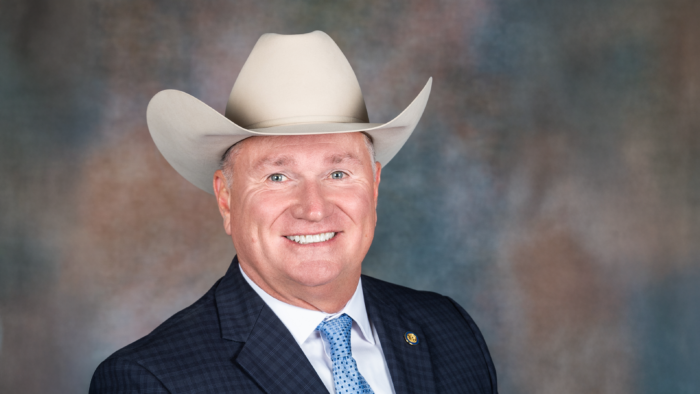
Two East Texas A&M Alums Lead Major State Agencies
Both Martin and Kidd graduated from competency-based degree programs at East Texas A&M designed to help working professionals advance their careers.
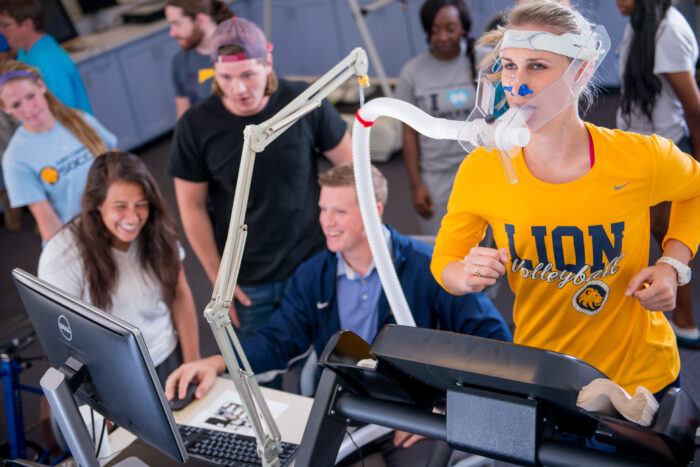
A&M-Commerce Introduces Bachelor’s with Strength and Conditioning Emphasis to Train Future Athletic Performance Coaches
The bachelor's in strength and conditioning will provide a comprehensive curriculum combined with theoretical knowledge and practical applications.


